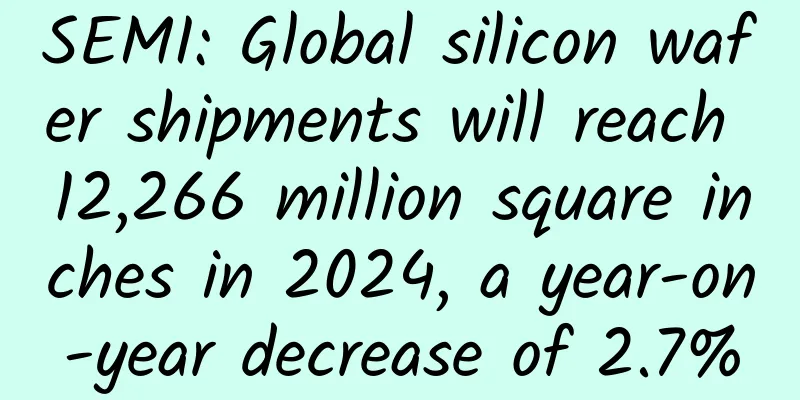Thunderbird is here, how far are TCL and LeTV from breaking up?

|
Multimedia COO Wang Cheng, successor to Master Bo Another year of early spring, some are happy while others are sad. Some are busy raising funds by swapping debt for equity, while others are lining up to launch new products. On March 28, Changhong launched its AI TV, and on March 29, TCL launched its Internet brand Thunderbird. After Xess, it launched another sub-brand. After Skyworth Coocaa, Hisense VIDAA, and Konka KK, 20 million families finally entered the market. Thunderbird Technology is a subsidiary of TCL Multimedia. Its CEO Guo Tong joined TCL from the Internet industry in 2016. According to industry practice, the team must get equity. In addition to making TVs, Thunderbird also operates an Internet platform for TCL, which seems to be the successor of TV+. The launch of Thunderbird happened to collide with that of LeTV on the same day. Is this perfect synchronization a prelude to a breakup? In fact, Huanwang, a joint venture between TCL and Changhong, has already torn LeEco apart. In March 2017, LeEco was sued by Huanwang in the Chaoyang District Court for defaulting on advertising fees. Huanwang was founded in 2009 by TCL and Changhong, each holding 27.4% of the shares and becoming the largest shareholder. In 2010, Broadband Capital invested 15% of the shares, and in 2015, Tencent joined the partnership and held 7% of the shares. The indictment said that LeTV owed advance payments and commissions for the 2016 advertising agency contract, and has not paid a cent to date. Huanwang had already taken back the advertising agency rights from LeTV in January 2017, so this year's advertising revenue will not be lost. Even Huanwang owes tens of millions of yuan, which shows that Jia is really broke. LeEco, which has over 10 million users, has to rely on selling land to survive, and the other companies are even further away from the 5 million profit line. On the contrary, Sharp owned by Mr. Guo has grabbed a lot of market share by lowering prices, and it is very likely to hit the 10 million target in 2017. The price/performance ratio is still valid, but it is not enough. The net profit of color TV has been only 5 points for so many years, leaving no room for imagination. What makes color TVs more expensive? IoT, AI, quantum dots, or OLED? The hardware competition is coming to an end. From screens to modules, there is nothing that cannot be bought. Even OLED is not a scarce resource in the long run. LeEco Zhixin has achieved a valuation of 30 billion yuan by turning large screens into platforms and turning tens of millions of users into traffic and data monetization. TCL Multimedia's current market value is HK$7.5 billion Everyone can see the model, but whether or not they can profit from it is another matter. Apple TV was delayed for many years, but it relied on iPhone to gain global market share. Whoever can make money from the big screen will be the second Apple. Over the years, those CPs that seem to be in harmony but are actually far apart It only took 16 months for Jia to go from being devoted to each other to being strangers. In November 2015, Jia spent 1.9 billion to subscribe for 20% of TCL Multimedia's shares at 6.5 Hong Kong dollars per share, becoming the second largest shareholder. The valuation of TCL Multimedia was less than 10 billion yuan. At that time, you all said it was a fire sale. Now look at the share price of Multimedia at 4 yuan. Jia Yueting's investment has shrunk by 22%. He is in tears. At that time, Boss Li invited Jia to eat seafood in Shenzhen, and both parties enjoyed themselves very much. He also let LeTV represent Huanwang's advertising for one year. I didn't expect that they would quarrel over this matter, and it seemed that they could no longer be friends. Lei Jun was lucky. Although the cooperation with Midea failed, he made a lot of money. In December 2014, Xiaomi held a 1.28% stake in Midea at 23 yuan per share, with an investment cost of 1.26 billion yuan. Now Midea's market value is 220 billion yuan, Xiaomi's equity value is 2.8 billion yuan, and Lei Jun's book profit is 120%. On March 21, TCL Multimedia released its annual report, with profits increasing sixfold. However, like last year, no dividends were paid, and Jia Yueting did not get a penny. On March 23, the Hong Kong Stock Exchange disclosed the equity of TCL Multimedia and listed Sunac at the first place. Many people thought that Jia had transferred his 20% to Mr. Sun and applauded. Unfortunately, it was a false alarm. According to the rules of the Hong Kong Stock Exchange, Sun Hongbin holds more than 1/3 of Sunac's shares, and Sunac holds more than 1/3 of LeEco Zhixin's shares, both of which are controlling shareholders. LeEco Zhixin holds 20% of TCL Multimedia, and must disclose the first-level controlling shareholder. Therefore, the three-level LeEco companies are listed on the disclosure form. Boss Sun was attracted by LeEco's land, LeEco was attracted by TCL's screens, and the rest was nonsense. Even real money investment is unreliable, let alone strategic cooperation rhetoric. In 2016, TCL Multimedia had a total of 17 million activated users, second only to Hisense and Skyworth in China, and its Internet platform revenue increased by 69% to only HK$72.29 million. With TCL's user scale, the platform revenue should be at least hundreds of millions, and the cooperation with LeTV has no effect at all. In 2017, Thunderbird will double its revenue if it works on its own. TCL chose LeTV to expand its Internet business, and LeTV chose TCL to ensure its foundry capacity, but in the end, neither party achieved their goals. It is extremely difficult for competitors to form a joint force, so the investment of Alibaba and RRS as the main parties is more reliable. In 2017, Alibaba acquired 34% of Gooday's equity through debt-for-equity swap, making another step forward in its logistics layout. However, its investment in Haier Multimedia was a little bit lacking, as color TV is not Haier's strong point, and even Alibaba failed to make TV shopping a hit. Internet + home appliances CPs The users are mine and yours, but in the end they are still mine. Just treat it as a financial investment. If you can make money in a few years, it will be good. Don't think too much. All brands are Internet brands In the future, all brands will be Internet brands, just like all TVs are smart TVs. The main purpose of color TV enterprises to set up sub-brands is to start from scratch in terms of mechanism and incubate entrepreneurial teams. The team holds shares and external shareholders. If they do well, they will be listed independently. If they don’t do well, the losses will be limited. At least there is a circle to allow you to make mistakes. This is one of Lao Yang’s greatest contributions to Skyworth. Coocaa and Juhaokan have been separated, and Thunderbird has also taken the route of independent operation. In terms of content, Thunderbird cooperates with Tencent and Youku, and uses the license of Southern New Media. Boss Li and Pony Ma have a good personal relationship. Although Tencent has not invested in it, it is hard to say whether Thunderbird will become the second Huanwang. Thunderbird 55-inch comes with a one-year membership for 3999. Do you think it’s attractive? In 2016, online sales of mainstream color TV companies accounted for 20 to 25%, and prices were not lagging behind. Instead, Internet brands could not withstand the price increase of panels and adjusted their prices. LeTV changed its high-end route in 2017, and its new products cost tens of thousands of yuan. LeEco, Sharp and Sony are selling at the same price, which one would you choose? The brand premium of the five major manufacturers is very limited, let alone Internet brands. Thunderbird's mission is to operate the Internet platform for TCL. LeTV is unreliable and Huanwang is a joint venture after all. It is most reassuring to hold the most valuable user resources in one's own hands. In fact, it doesn't matter how many Thunderbirds are sold. 20 million households don't care about these few hundred thousand. What matters is to do a good job in the Internet. TCL was the first to propose smart transformation and made a prototype of smart TV in 2008, but it got up early and caught up late. There is also global broadcasting and global simultaneous theaters model, which is so great that competitors couldn’t help but give it thumbs up. It was almost close to the B round of financing, but then there was no news about it halfway through. The Internet brand system used to be easy to use. Now everyone’s UI is pretty good and the content is similar. The next step is to work on interaction. In the past two years, the replacement cycle of TVs has been shortened, but the power-on time has also been reduced. The stickiness of large screens is still not enough. What is important is not just the content, but the connection with users. Post-90s want to forward, complain, and give rewards. Live broadcasts are more popular than videos. How can large screens keep up? In 2017, the keyword for color TVs changed from curved screens to AI, and the biggest winner was iFlytek. Artificial intelligence based on voice interaction is still very rudimentary, and cannot be compared with Google, Microsoft, Intel, or Tencent or Baidu. However, it is enough for searching videos and checking the weather for color TVs, and at most ordering takeout. Master Bo complained in Boao that big data is unreliable. "I searched for purple clay teapots once and they recommended health preservation to me every day. Are they saying I'm too old?" (So this retirement is real?) I agree with Master Bo on this point. The way big data is used is not to broaden people's horizons, but to restrict them. If AI makes people more and more narrow-minded, that is not the future we want. Where does the premium for color TVs come from? In March, only Hisense Electric and TCL Multimedia released their annual reports, with gross profit margins of only 17 to 18% and net profit margins of around 5%. Hisense 2016 Annual Report Raw materials also account for 80% of the cost, and the net profit margin of color TVs is only half of that of white TVs. The market share of the top player is less than 20%, and there is no real oligopoly. The entry of Internet brands has further dispersed the competition and lowered the gross profit margin. TCL's most valuable asset is its panels, which are also the basis for its multimedia profits. In 2016, panel prices soared, but TCL's multimedia performance turned around, with revenue of HK$33.36 billion, a year-on-year decrease of 1.9%, and net profit increasing sixfold to HK$180 million. After the annual report was released, the share price of Multimedia rose all the way, with the increase approaching 20%, and it is expected to return to 5 yuan. Unfortunately, Multimedia cannot be privatized like Communications, and Mr. Li's money must be left to Huaxing. Huaxing already has two 8.5-generation lines. Its small-size AMOLED will be displayed at the Wuhan Expo this year, and its large-size printed type will be put into trial production in June. Besides BOE, Huaxing is the second largest panel manufacturer in China. Panel prices are still strong at present, but hardware costs will definitely fall in the long run. In 2018, BOE's Hefei 10.5-generation line went into mass production, and in 2019, CSOT's 11-generation line (same size as 10.5-generation) went into mass production, followed by Guo's Guangzhou 10.5-generation line. As the production capacity of the three lines increases in turn, the price of large-size panels will continue to fall. Small screens are flexible, and large screens have quantum dots and OLED. These two will run in parallel for at least four to five years, and everyone will make money. In addition to CSOT, TCL also has finance. On March 27, TCL announced that it would use 18 billion yuan of idle funds to buy financial products. The group's financial profits have always surpassed those of color TVs. In 2015, the financial sector earned 660 million yuan, second only to CSOT, and it seems that this year will be the same. The name Thunderbird always reminds me of the "rebirth of the eagle". TCL wants to keep up with the Internet wave, which means rebirth again. If the mobile phone is not good enough, there is still multimedia. With 20 million sales and the support of Huaxing, it doesn't matter whether there is LeTV or not. As a winner of Toutiao's Qingyun Plan and Baijiahao's Bai+ Plan, the 2019 Baidu Digital Author of the Year, the Baijiahao's Most Popular Author in the Technology Field, the 2019 Sogou Technology and Culture Author, and the 2021 Baijiahao Quarterly Influential Creator, he has won many awards, including the 2013 Sohu Best Industry Media Person, the 2015 China New Media Entrepreneurship Competition Beijing Third Place, the 2015 Guangmang Experience Award, the 2015 China New Media Entrepreneurship Competition Finals Third Place, and the 2018 Baidu Dynamic Annual Powerful Celebrity. |
<<: Scalpers resell Tesla Model 3 reservations and earn 300% profit
Recommend
Is the FOTILE refrigeration hood and cooking center, which costs 28,980 yuan, leading a real trend or creating false demand?
On the evening of August 12, Fotile, a veteran co...
How to play information flow advertising? It took 300,000 yuan to summarize the experience!
Industry Overview: According to incomplete statis...
User operation conversion funnel model!
There are 8 links in the commercial conversion pa...
8,000-word article reviewing the development of the short video industry
In 2020, short videos will undoubtedly still stan...
What efforts has mankind made to approach the low temperature limit?
Every summer, people living in hot environments a...
APP Promotion Operation Manual Complete Strategy
Starting from the position of mobile Internet mar...
How can the education and training industry effectively attract new customers? Share 3 tips!
Difficulty in recruiting students and high costs ...
Hunan Satellite TV suffered a setback. Will Mango TV, which has been broadcasting exclusively for two years, be the lifeline of Hunan Radio and Television?
"Hunan Satellite TV's programs don't...
I have summarized 8 ways to attract traffic from Douyin
When the graphic and text fields and other fields...
Product News | 360Dianjing APP is officially launched!
360 resources are online and offline, and product...
How do Japanese pubs generate private domain traffic?
Friends who often watch Japanese dramas will defi...
Is the “four-hour sleep method” reliable? Experts remind →
Recently, Zhang Chaoyang, founder of Sohu, talked...
How to reduce APP uninstall rate? Here are seven ways!
The mobile application market is now a crowded ma...
People who never dare to show their feet in summer have this unspeakable secret (it’s not athlete’s foot, it’s contagious)
In the hot summer, when others wear light sandals...
Does snoring mean you are sleeping well? In fact, it is the enemy of your health.
Author: Lu Xiang, Chief Physician, Shaw Hospital ...









